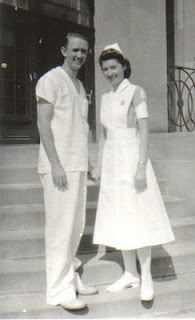|
What makes historical fiction historical? I recently finished reading From Dust and Ashes, set in the aftermath of World War II. It has the subtitle A Story of Liberation. Although American GIs liberate the Gusen concentration camp in the opening chapters, the liberation referred to is spiritual. Helene, the Austrian wife of a missing SS officer, is wracked by guilt for her own complicity and her husband’s horrific actions. She is one of the first to enter the camp to bring aid. There she meets Michaela, a Polish inmate near death, whose faith brings new life to Helene’s family. Michaela has been ‘free’ all along despite her imprisonment in near-starvation conditions. Helene, safe and well-fed during the war, is in need of liberation as are the former prison guards like her husband and even the attractive American GI who is drawn to both women. Trisha Goyer recreates a world that boggles my imagination. Inspired by her grandfather’s stories, she captures the complicated situation and conflicting emotions on all sides and makes them believable. Her sense of eye-witness realism sent me to the Internet to read about the brutal Gusen camp outside St. Georgen, Austria.  My parents, 1946 My parents, 1946 So what does make a novel historical? Trisha Goyer’s grandfather remembered the events that inspired her story. My eighty-eight-year-old father was a young medical student in the 1940s. A German friend once told me about playing in bombed out buildings as a child. Does that mean it’s not history if living people remember it? Or does “historical” mean “not in the lifetime of the reader”? That would make World War II historical for me, but not for my father. My coming of age during the Viet Nam era is historical to today’s young adults. But by that definition a book about 9/11 is historical for many school children, too young to remember that cataclysmic event. In a recent Internet discussion on this topic, writer Lynn Dean commented, “In trying to understand what we mean by “historical,” it helps me to define “contemporary.” Does contemporary mean that the story happened within some readers’ lifetimes?... Or is a contemporary story one that could feasibly happen now?” If contemporary is what “could feasibly happen now,” then the definition might vary. An international thriller published in the 1980s will have a very different view of the world than one published after the fall of the Berlin Wall or post-9/11. A friend writing a YA novel set during a major flood in 1997 is struggling to make it feel authentic to readers who take for granted technology that was new and unfamiliar then. But a story in a rural setting or not concerned with technology, international affairs or a simple trip through airport security might feel contemporary for decades longer. From Dust and Ashes could not have taken place in the aftermath of Vietnam or the American Civil War. It had to take place in late 1940s Europe. Perhaps “historical fiction” is fiction in which the time period of the events is significant (even essential?) to the development of the story. What do you think? What is historical fiction? What other topics might quickly link a novel to a time period because of changing realities or perceptions?
1 Comment
LeAnne
1/7/2015 03:51:55 am
This post was moved from another site. All comments were lost.
Reply
Leave a Reply. |
AuthorLeAnne Hardy has lived in six countries on four continents. Her books come out of her cross-cultural experiences and her passion to use story to convey spiritual truths in a form that will permeate lives. Add http://www.leannehardy.net/1/feed to your RSS feed.
To receive an e-mail when I post a new blog, please subscribe.
Categories
All
Archives
November 2022
|
 RSS Feed
RSS Feed